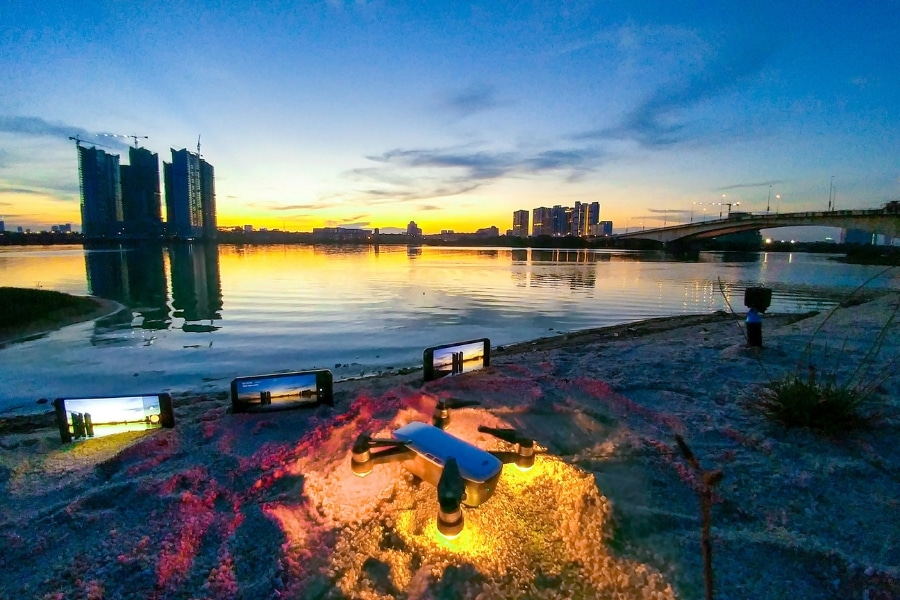Outline
Key Takeaways: What You Need to Start Your F&B Business in Malaysia
- Register your business with SSM to legally operate in Malaysia.
- Secure necessary licenses such as business premises, signboard, and sector-specific permits.
- Comply with food safety regulations including food handling certification, typhoid vaccinations, and health inspections.
- Obtain a WRT license if importing food products or operating as a wholesale trader.
- Follow taxation and financial regulations, including SST registration for businesses exceeding RM500,000 in revenue.
- Ensure employee registration with EPF and SOCSO and secure work permits for foreign workers.
- Franchise businesses must be registered with the Ministry of Domestic Trade and Consumer Affairs (MDTCA) before operation.
- Consider location-specific requirements, e-commerce licensing, sustainability, and investment incentives to ensure smooth operations and long-term success.
Starting a Food & Beverage (F&B) business in Malaysia is an exciting and profitable opportunity. With a growing consumer market, strong demand for diverse food options, and government support for entrepreneurs, the country is a prime destination for F&B investments. However, to legally operate, you need to obtain the proper licenses, comply with regulatory requirements, and prepare for operational success.
This comprehensive guide will walk you through each step required to set up your F&B business, ensuring full legal compliance while positioning your venture for growth.
Step 1: Business Registration with SSM
Before opening your restaurant, café, or food processing business, you must register with the Companies Commission of Malaysia (SSM). This formalizes your business and allows you to apply for necessary permits and financial support.
Choosing the Right Business Structure
Your choice of business structure will affect legal liability, financial obligations, and ease of expansion.
- Sole Proprietorship (Enterprise) – Best for small businesses with minimal risks but offers no personal liability protection.
- Partnership – Suitable for businesses with multiple owners sharing responsibilities and liabilities.
- Private Limited Company (Sdn. Bhd.) – The best option for F&B businesses, as it provides limited liability protection, credibility, and better access to financing.
How to Register Your Business
- Conduct a Business Name Search on the MyCoID Portal to check availability.
- Submit the SSM registration application and obtain the Certificate of Incorporation.
If you plan to import food products, registering as an Sdn. Bhd. is highly recommended as it simplifies applications for import/export licenses and customs clearances.
Additionally, you should consider registering your brand name, logo, and product names with MyIPO for intellectual property protection, ensuring that competitors cannot replicate your brand identity.
Step 2: Obtaining General Business Licenses
After registering, your F&B business must secure general business licenses from the local municipal council (Pihak Berkuasa Tempatan – PBT).
Essential Licenses
- Business Premises License – Mandatory for operating a restaurant, café, food processing facility, or retail F&B outlet.
- Signboard License – Required for displaying business signage. It must adhere to local language and design regulations.
Choosing your business location before applying for licenses is critical, as local councils may impose zoning restrictions on certain F&B businesses.
Some commercial properties, such as shopping malls and business parks, have additional leasing conditions that require business owners to adhere to specific operational guidelines.
Step 3: Securing Sector-Specific Licenses for F&B Businesses
The F&B industry is subject to strict health and safety regulations to ensure consumer protection. You must obtain the following licenses:
- Food Handling Certification – Mandatory for all employees involved in food preparation.
- Typhoid Vaccination – Required for food handlers to prevent contamination.
- Health Inspection & Premises Approval – Conducted by the Ministry of Health Malaysia (KKM) to ensure hygiene compliance.
- Halal Certification (JAKIM) – Required for businesses serving Halal-certified food.
To avoid delays, schedule your KKM health inspection in advance. The inspection will assess kitchen layouts, hygiene practices, and waste disposal systems.
Additionally, businesses involved in food production and packaging should comply with environmental waste management policies under Malaysia’s Environmental Quality Act.
Step 4: Obtaining a WRT License for Importing Food Products
If your F&B business imports ingredients or packaged food products, you may need a Wholesale, Retail, and Trade (WRT) License from the Ministry of Domestic Trade and Consumer Affairs (KPDN).
Step 5: Obtaining Activity-Specific Licenses
Certain F&B businesses require additional licenses based on their operations:
- Liquor License – If serving alcohol.
- Music & Entertainment License – If playing background music, hosting live performances, or operating a karaoke venue.
- Outdoor Seating Permit – Required for dining tables outside the business premises.
- Waste Disposal & Grease Trap License – Ensures proper waste management to meet environmental standards.
Non-compliance with waste disposal and hygiene regulations can result in hefty fines or temporary business closure.
Step 6: Hiring Employees & Work Permits for Foreign Workers
Your employees must be registered with EPF (Employees Provident Fund) and SOCSO (Social Security Organization).
If hiring foreign workers, you must apply for work permits from the Immigration Department of Malaysia.
Hiring local employees first can speed up licensing approvals, as some permits require proof of local employment.
Step 7: Tax & Financial Compliance
All F&B businesses in Malaysia must adhere to tax laws and maintain financial compliance.
Maintaining detailed financial records is crucial for tax filing, compliance, and securing business loans.
Additionally, F&B businesses may qualify for investment incentives, grants, and tax relief programs, such as those provided by MATRADE, MDEC, and the Halal Development Corporation (HDC).
Step 8: Additional Requirements for Franchise Businesses
If you are starting an F&B franchise, additional requirements must be met.
Franchisees should apply for WRT and import licenses early, as food importation approvals may take months.
Final Thoughts
Setting up an F&B business in Malaysia requires careful planning, compliance with regulations, and proper licensing. Having all necessary approvals before launching helps avoid delays, fines, and operational setbacks.
Malaysia’s F&B market offers immense growth opportunities, supported by government incentives, a diverse consumer base, and a growing demand for international cuisines. Whether you’re launching a local restaurant, an international franchise, or an online F&B brand, following these steps will position your business for long-term success.
🚀 Need expert guidance for your F&B business setup? Our team can assist with business registration, licensing, and regulatory compliance. Contact us today!



